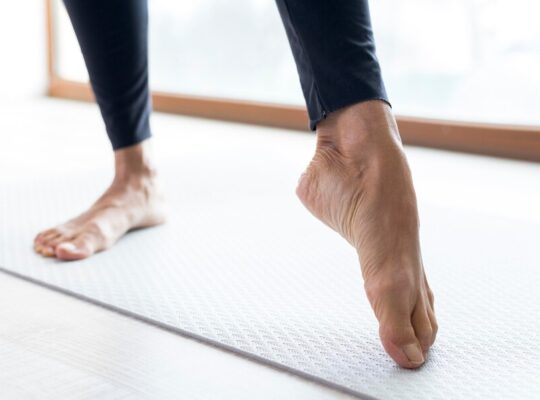Morning walks are one of the easiest and most effective exercises that anyone can do. They don’t require any equipment, and people of any age can benefit from them. Besides keeping the body in shape, walking in the morning also improves your state of mind, helps you sleep better, and treats various chronic diseases. In this comprehensive blog, we will highlight the many benefits of morning walks and how incorporating them into your routine can enhance your quality of life.
Physical Health Benefits
- Boosts Cardiovascular Health
Morning walks are especially beneficial for heart health. They enhance blood flow and reduce the risk of heart disease. Morning walks are particularly useful for maintaining blood pressure and cholesterol levels, especially for those with high blood pressure or those aiming for a healthy heart. As you walk, your heart rate increases, pumping blood throughout your body and strengthening your heart over time. - Promotes Weight Loss
If you’re looking to shed some pounds, morning walks can work wonders. Walking helps burn extra calories and keeps off extra weight. The best part is that morning walks stimulate metabolism, allowing you to burn more calories throughout the day. Exercise in the morning for at least 30 minutes daily, and pair it with a cholesterol-lowering diet for even better results. Walking regularly at a moderate pace is crucial to achieving weight loss. - Enhances Digestive Health
Morning walks significantly improve digestive health. Walking activates the muscles of the digestive tract, ensuring regular bowel movements and preventing constipation. Morning walks are especially beneficial when taken after meals, as they aid in moving food through the digestive system. As pointed out in our Vitamins for Digestion blog, digestion is vital to your well-being. - Strengthens Muscles and Joints
Walking is an excellent exercise for strengthening muscles and joints. It is particularly effective for the elderly and those with arthritis or joint pain, as it helps make joints more flexible. Regular morning walks are also beneficial for patients undergoing Total Knee Replacement (TKR). Whether it’s a slow walk or a brisk one, walking improves blood circulation around muscles, making them strong and elastic. Over time, this leads to increased mobility and reduced joint pain. - Improves Lung Function
Cool morning air significantly improves lung capacity. Morning air is fresher and cleaner compared to night air, which is often dustier. This benefits the entire body as the lungs receive more oxygen, improving overall health. If you’re interested in enhancing your respiratory system, check out our blog on Breathing In or Out.
Mental Health Benefits
- Reduces Stress and Anxiety
Walking in the morning is an excellent way to reduce stress and anxiety. The combination of physical activity, natural surroundings, and fresh air helps lower stress levels. Physical activities like walking release endorphins, which improve mood. Morning walks are especially beneficial for those with Obsessive Compulsive Disorder (OCD) or other mental health conditions that require exercise as part of treatment. Walking clears the mind, reduces negative thoughts, and promotes better psychological well-being. - Improves Mood and Mental Clarity
Morning walks have a positive impact on your mood and mental clarity. The tranquility of the early morning helps set a positive tone for the day, making it easier to maintain a good attitude toward life. Morning walks are particularly beneficial for those with mood disorders like Bipolar Disorder. Waking up early for a walk helps you control your emotions, feel calm, and stay focused throughout the day. Exposure to natural light during a morning walk also helps regulate your body clock, improving mood and cognitive function. - Promotes Better Sleep
If you struggle with insomnia or poor sleep quality, try waking up earlier and taking a morning walk. Daily exercise helps regulate your circadian rhythm, making it easier to fall asleep and stay asleep at night. Morning walks are particularly effective because they help reset your internal clock through exposure to natural light. This can be especially useful in managing sleep disorders related to mental conditions such as Schizophrenia. Getting enough sleep improves mood, concentration, and overall health.
Social Benefits
- Encourages Social Interaction
Morning walks are not only good for your health but also for social interaction. Walking in your neighborhood or joining a walking group allows you to meet new people and build social connections. Interacting with others is crucial for mental health, especially for those dealing with personality disorders like Narcissistic Behavior. Being part of a community reduces loneliness and increases happiness. - Fosters Discipline and Routine
Incorporating a morning walk into your routine fosters discipline and helps keep your body in good shape. Having a set schedule, such as walking every morning, has positive effects on both your physical and mental health. It also promotes a positive outlook on the day, making it easier to manage your time effectively. For more tips on routine transformation, visit our blog on Time Management. Once you’ve established a morning walk routine, it’s easier to incorporate other healthy activities into your day.
Special Considerations
- Benefits for the Elderly
Morning walks are especially beneficial for the elderly. They improve mobility, reduce the risk of falls, and enhance the quality of life. Walking strengthens the muscles around the joints, improving balance and coordination. This is particularly important for elderly individuals with chronic illnesses like Chronic Kidney Disease (CKD). Walking also provides cardiovascular exercise without putting undue stress on the body. It can even relieve symptoms of arthritis and osteoporosis, helping elderly people maintain their health and mobility. - Helps Manage Chronic Conditions
Morning walks are extremely helpful for managing chronic conditions like diabetes, heart disease, and hypertension. For instance, walking can help manage blood sugar levels in people with diabetes and control blood pressure in those with hypertension. Regular walking also helps maintain a healthy weight, which is crucial for those with kidney disease. Additionally, walking has mental health benefits, which are important for people with chronic diseases that affect their lifestyle. Physical activity can alleviate symptoms of depression and anxiety, promoting a more positive outlook on life. - Supports Mental Health Conditions
The health benefits of morning walks extend to those with mental health disorders such as Obsessive Compulsive Disorder (OCD). Physical activity reduces anxiety and depression, which are common in OCD. The structured and repetitive nature of walking can also help control compulsive behaviors. Additionally, walking boosts the production of certain chemicals in the brain that help regulate mood and anxiety. Adding a morning walk to the treatment plan for patients with OCD can improve the effectiveness of other therapies and overall outcomes.
Conclusion
The importance of morning walks cannot be overstated, as they enhance physical health, mental health, and social connections. Whether your goal is to improve heart health, manage a chronic disease, or simply start your day on a positive note, a morning walk is a great habit to develop. Make morning walks a daily practice, and you’ll soon begin to see the benefits.
To learn more about ways to improve your quality of life, visit our other blogs, such as Typhoid Immunization and Home Remedies for Gallstones. This valuable information on various health issues can complement the benefits of morning walks.
FAQs
- What is an ideal amount of time to go out for a morning walk?
It is advised to do brisk walking for not less than half an hour in the morning to enjoy the benefits of walking. This shows an embracing fact that even simple physical exercise like walking can be recommended when one is only willing or physically capable of doing so for 15 minutes. - Does a morning walk aid in losing weight?
Morning walks can help with weight loss since they increase metabolism and the rate of calorie burning. Therefore, walking for a specific time daily, in conjunction with the right diet, is useful for managing your weight. You may also find our blog on Cholesterol-Lowering Diet Plan helpful. - Is walking in the morning more effective than walking at other times of the day?
Morning walks have general advantages, like increasing your metabolic rate and enhancing brain function. Most importantly, you bathe in fresh air. However, walking at any time of the day brings benefits. - Can morning walks provide a mental health boost?
Indeed, morning walks are very beneficial as they lower stress and anxiety levels and prevent symptoms of depression. They also activate endorphins that make one happy and alert. Therefore, it can be a great way to begin your day. Read more about mental health benefits in our blogs on Schizophrenia and Obsessive Compulsive Disorder. - Can people with conditions like diabetes or high blood pressure take a morning walk?
Absolutely. Morning walks have proven effective in controlling blood sugar levels and blood pressure, which favorably affects diabetic and hypertensive patients. This is especially important for those managing conditions like Chronic Kidney Disease (CKD). - What is the need for the elderly to take morning walks?
Regular morning walks help the elderly in their daily movement, minimize their risk of falls, and refresh their well-being. They are particularly useful for retaining joint and cardiovascular strength. Learn more in our article on Chronic Kidney Disease. - What should I wear for a morning walk?
Wear comfortable clothes and shoes suitable for walking and hiking. If it’s chilly, layer up; if it’s hot, choose light fabrics. Also, remember to wear sunscreen and a hat. - If I have joint pain, does it mean I can’t benefit from a morning walk?
Morning walks are not rigorous, and they are effective in easing joint pain as they enhance flexibility and tone the muscles that support the joints. It’s a mild way of exercising, friendly to bones and joints. This can be particularly beneficial after Total Knee Replacement surgery. - How can morning walks assist in the digestion process?
Walking helps facilitate bowel movements, enhancing the digestive system and relieving bloating. When performed after meals, it aids in digestion, making the process much easier. For more on this, check out our blog on Vitamins for Digestion. - Is it safe to walk alone in the morning?
Walking alone in the morning can be safe if certain measures are observed. Avoid dark places, stay away from deserted areas, remain alert to your surroundings, and always inform someone of your whereabouts and when you will return home.












